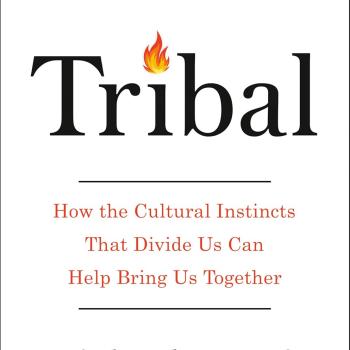In Christian Political Witness, how might McKnight and Gombis’ chapters practically shape the church’s ministry?
(For a summary of their chapters, see my previous post.)
1. A “Social Gospel”?
These two chapters should alert people that the gospel does indeed have a social aspect. Too many people hear the word “gospel” connected with politics, serving the poor, etc. and then immediately get suspicious or even defensive.
Conservatives worry that such a “gospel” is too this-worldly to be any eternal good.
However, because the gospel is inherently a political summons from a king, the gospel is necessarily public. Loyalty to a king expresses itself across the spectrum of social spheres. Therefore, a “gospel” that does not compel radical public transformation of church communities is sub-biblical; it is hardly worthy of the name “gospel.”
If Jesus really is the king over governments, corporations, neighborhoods and families, then how can the citizens of God’s kingdom remain apathetic or resistant to ministries that seek to meet tangible needs?
How is it that a strong concern for saving people from eternal suffering can somehow lead to practical indifferent to present suffering in the world?
We may need to rethink our view of the gospel.
2. A Church Gospel?
Various people (including McKnight) have noticed the traditional “soterian” gospel (concerning how individuals “get saved”) has a tendency to undermine a biblical view of the church. There is nothing inherent to the logic of a “soterian gospel” that compels one to belong to a local church; after all, one is now saved. Even if it is helpful, there seems nothing necessary about the church’s relationship to the traditional soterian gospel.
McKnight and Gombis provide the logic needed to bridge the gap between the gospel and the Church. The gospel proclaims a kingdom. This kingdom includes the church. They are not identical. Accordingly, the gospel should in some way articulate a message that compels a biblical vision of the church, whether its necessity, nature, or mission.
In other words, salvation is more than a rescue from punishment; ultimately, it is the restoration of God’s people. Conversion is a transfer of group identity because the gospel requires a shift in allegiance. This is precisely why Jesus says that whatever is done for “the least of these, my brothers” is done for him (Matt 25:40).
Genuine believing compels belonging.
It is not good news to hear they must forsake their blood family when they are not told they will receive (regain?) a new worldwide family.
3. An Ethnic Gospel?
Because Christ reigns over all nations, he is king over minority groups.
Chinese, like Israel in history, can forget this point. In China, there are two kinds of people––Chinese and foreigners (外国人, literally outside-country-people). Additionally, one of the standard terms for the Chinese language is the word “普通话” (i.e. “the common language”); ironically however, this simply refers to the language of the Han majority people.
We know that cultural pride and nationalism can produce antipathy towards certain nations. However, they also tend to foster a more subtle evil within the church ––– apathy. As a result of sheer indifference, we deny the whole gospel, which was preached “beforehand to Abraham, saying, ‘In you shall all the nations be blessed’” (Gal 3:8).
 Among missionaries, we see a similar problem. Gospel presentations have little to do with group or ethnic identity. On the one hand, there are reasons for this in the history of evangelicalism. On the other hand, I wonder how much of the problem, at least among American missionaries, is a result of America’s history of slavery. Americans have a love/hate relationship with the conversation about ethnicity.Perhaps this is due to embarrassments. Or, maybe people assume that legislation alone has taken care of the problem. Whatever the case, Americans can be a bit uncomfortable acknowledging that ethnic identity matters to the rest of the world.
Among missionaries, we see a similar problem. Gospel presentations have little to do with group or ethnic identity. On the one hand, there are reasons for this in the history of evangelicalism. On the other hand, I wonder how much of the problem, at least among American missionaries, is a result of America’s history of slavery. Americans have a love/hate relationship with the conversation about ethnicity.Perhaps this is due to embarrassments. Or, maybe people assume that legislation alone has taken care of the problem. Whatever the case, Americans can be a bit uncomfortable acknowledging that ethnic identity matters to the rest of the world.
Resolving ethnic tensions does not occur by ignoring them, pretending they don’t exist. Harmony is also not the result of uniformity.
Rather, it is only by acknowledging differences that genuine harmony can be achieved.
That is a very practical point for any church.
Photo Credit: CC 2.0/wikipedia



















